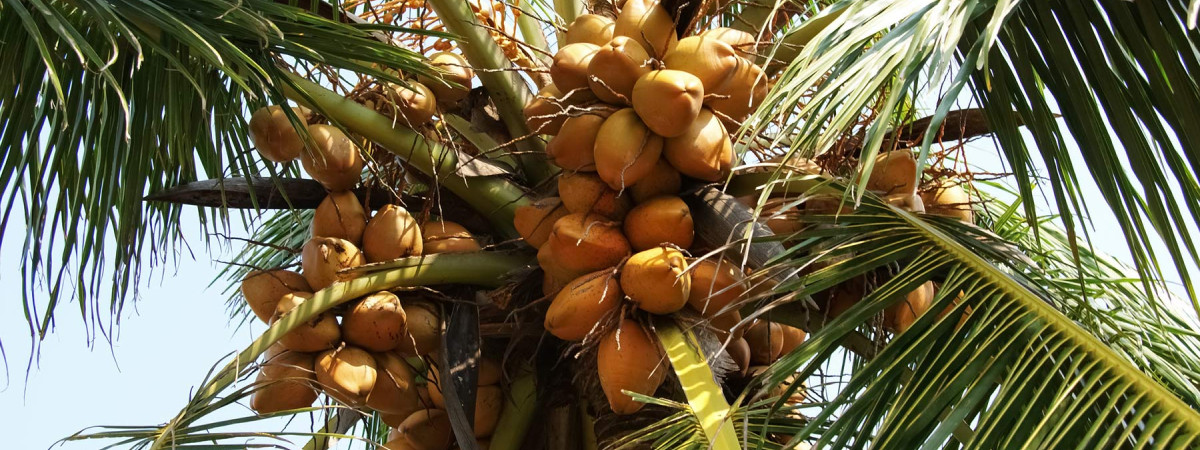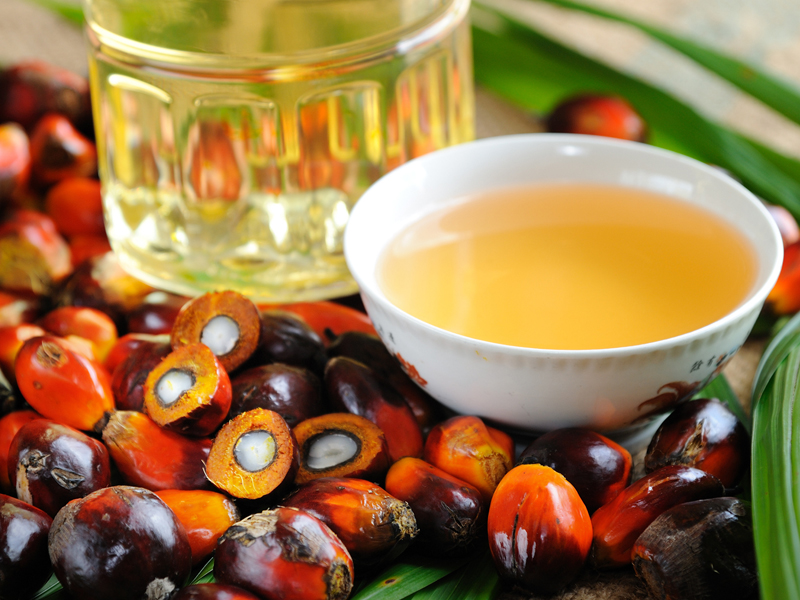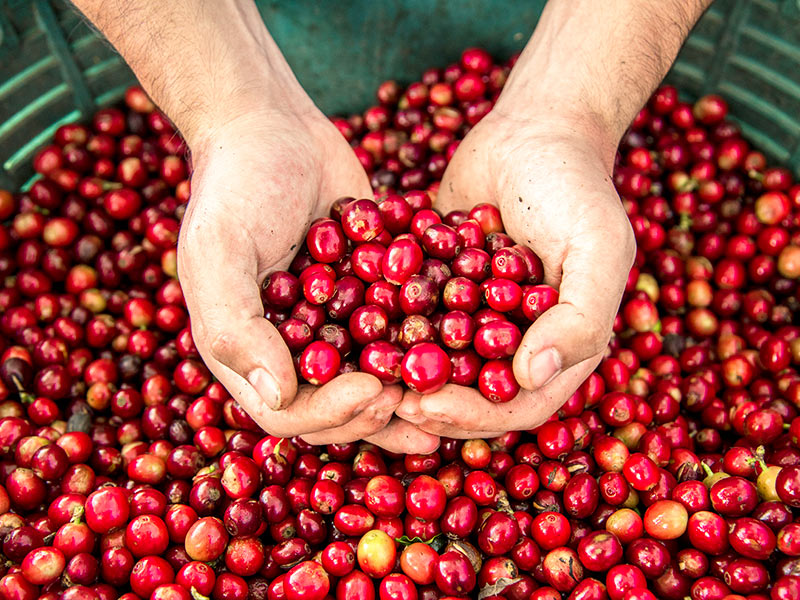
Authors
-

Associate Director, Collaboration, BSR
-
Grégory Bardies
Executive Director, Sustainable Coconut Partnership
-

Associate, Collaboration, BSR
-

Associate Director, Consumer Sectors, BSR
The BSR Sustainable Coconut Partnership team discusses the recently launched Sustainable Coconut Partnership, the unique challenges facing farmers, and how it plans to scale impact in the year ahead.
Could you tell us about the Sustainable Coconut Partnership?
The Sustainable Coconut Partnership (SCP) is the global platform for coconut sustainability and is a multi-stakeholder initiative aiming to build a responsible and resilient coconut sector that solves a generational challenge of sustainability for millions of coconut farmers.
Working across all coconut products on a global scale, SCP unites stakeholders to drive positive impact for farmers’ livelihoods by establishing industry-wide best practices and impact programs. With around 20 active members and a community reach of more than 500 professionals, SCP is already well-positioned to establish a much-needed common approach to coconut sustainability. Our members are active on the ground in producing, processing, and sourcing coconut products, and their membership positively influences supply chain partners. SCP also welcomes members from civil society, associations, financial institutions, academia, research organizations, and governments who are change-makers in their own capacity and bring much to our joint vision.
What is your mission and strategy for impact?
SCP’s mission is to catalyze responsible coconut production and market transformation at scale by establishing industry-wide best practices and impact programs.
Both in-depth research and our members active on the ground report that industry players alone are poorly equipped to tackle the underlying sustainability issues in the coconut sector. SCP addresses the lack of linkages between public and private programs by driving transparency and collective action and develops impactful, game-changing projects in production landscapes.
One of the first milestones was to define a common language for coconut sustainability in the Sustainable Coconut Charter, which was developed with over 100 organizations worldwide. We can operationalize the coconut charter’s goals if impact projects adopt these guiding principles so that they become industry-wide, scalable, and replicable best practices, thus inspiring farmers and new entrepreneurs to adopt sustainability principles. Establishing the right structure and strategy to increase investments and secure success has been a true test of SCP’s ability to work through divides, unite stakeholders, and change the narrative to ultimately accelerate positive impact across the supply chain.
What are the key challenges when addressing issues such as farmers' livelihoods? How can SCP help?
It all starts with farmers. Currently, they are not reaping the benefits of the product that they grow. Ranked among the world's poorest, most smallholder farmers that are dependent on coconut are trapped in a vicious circle of poverty, unable to invest in their farms. SCP intends to solve this once-in-a-generation challenge and support the livelihoods of millions of farmers.
More than half of the world’s coconut trees are becoming senile, resulting in lower yields and a daunting replanting phase. This is driving new generations to leave farms, rather than start in these conditions with limited resources after already observing their elders struggle to make a living income. Ironically, despite these challenges, demand is currently outpacing supply as consumers seek sustainably sourced coconut.
Although a growing body of evidence shows coconut plantations can support farmers while benefiting the environment as exceptional carbon sinks, this requires the right investment. SCP aims to address this challenge in a field in which more than 95 percent of coconut plantations belong to smallholder farmers, mostly unorganized.
One of our flagship initiatives, the Impact Project Accelerator, exemplifies SCP’s impact focus. The Accelerator provides dedicated support and expert advice to impact projects through their design, recruitment, and funding phases, which fills an identified resource gap among individual member companies and addresses a current lack of connection between public and private programs. Members can suggest projects for consideration and receive guidance on developing credible products that are accessible to upstream producers, buyers, and investors.
So, what’s going to be keeping you busy in the coming months?
We’re already very busy! After establishing the organization and defining an ambitious scope of work with our members, we are now starting to drive change at scale. SCP is focused on supporting members to find their partners, public and private, to accelerate impact projects while upholding the ambition and principles of the Sustainable Coconut Charter.
In the next months, look out for SCP’s revision of the Sustainable Coconut Charter, the first cohort of projects from the Impact Project Accelerator, new information on regenerative agriculture and protection of the environment, and our flagship roundtable event in November in Indonesia, where we will be announcing exciting new partnerships.
We invite organizations that have direct involvement in coconut supply chains, as well as civil society organizations, associations, trade bodies, governmental organizations, and other players indirectly involved in the coconut industry, to join SCP. For more information, please contact us.
Support for SCP comes from a multi-year program between BSR and the Swedish International Development Cooperation Agency (Sida) to promote business-led multi-stakeholder collaboration.
The creation of the SCP steering committee and partnership has been facilitated by The Deutsche Gesellschaft für Internationale Zusammenarbeit (GIZ) GmbH as part of a development partnership on sustainable coconut (oil) production under the develoPPP program. As part of this, GIZ will furthermore continue to support the organization of the Roundtable meetings.
Topics
Collaborative Initiatives
Let’s talk about how BSR can help you to transform your business and achieve your sustainability goals.







